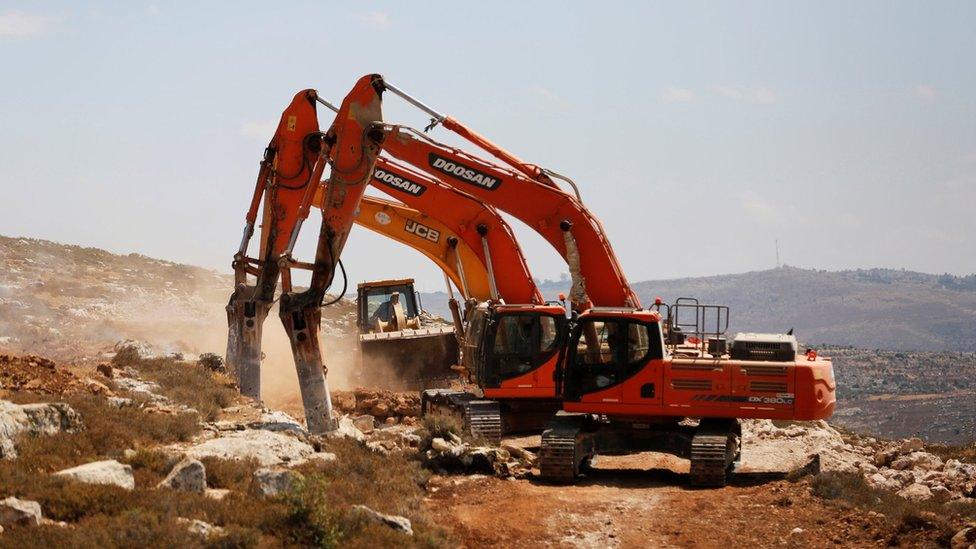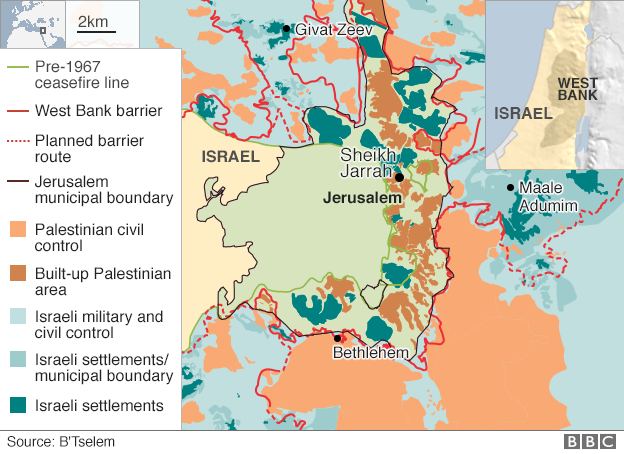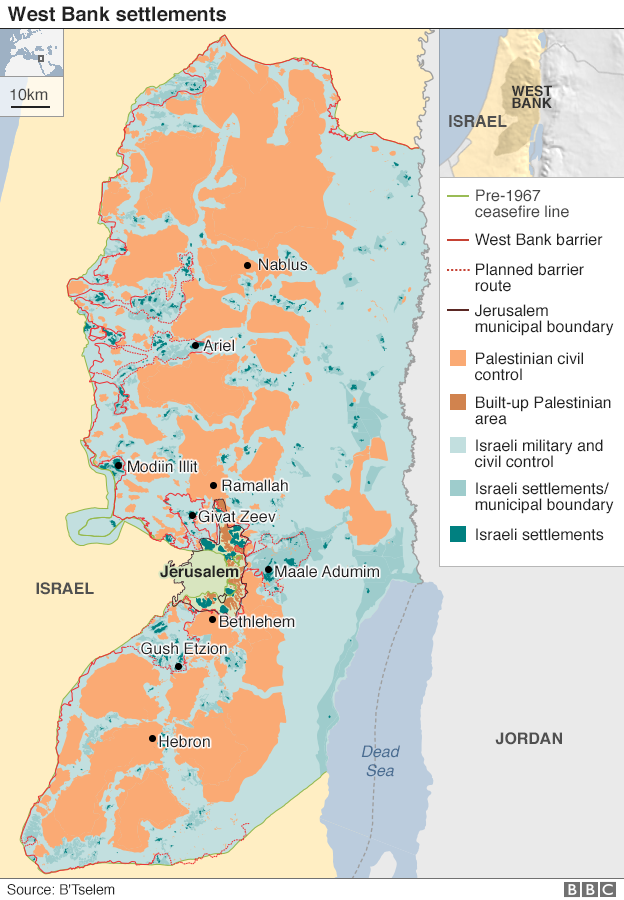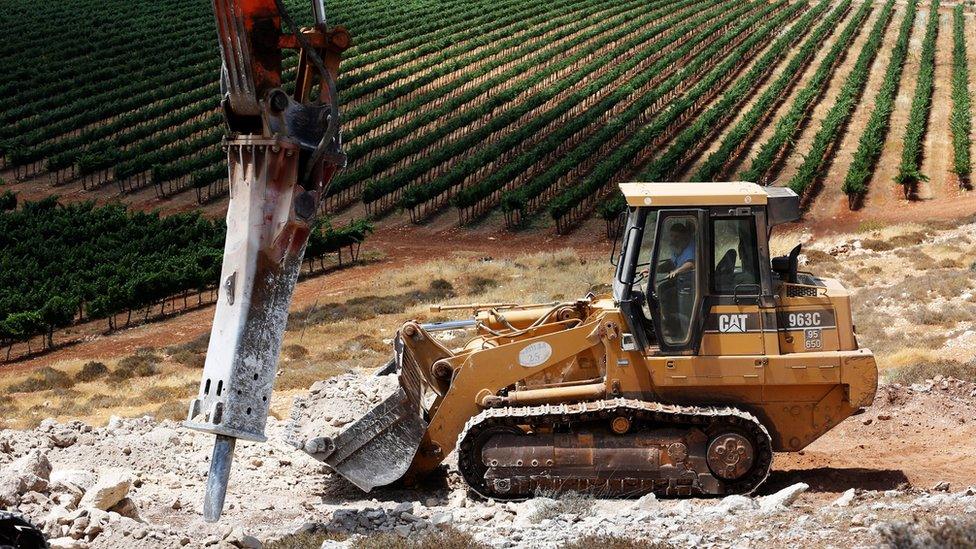Israel starts work on first new West Bank settlement in 20 years
- Published

This is the first time an Israeli government has built a new settlement since the 1990s
Israel has started work on the first new Jewish settlement in the occupied West Bank for more than 20 years, Prime Minister Benjamin Netanyahu has said.
He tweeted, external a photograph of a bulldozer and digger breaking ground for the settlement, to be known as Amichai.
It will accommodate some 40 families whose homes were cleared from the unauthorised settler outpost of Amona.
A Palestinian official denounced the ground-breaking as a "grave escalation" and an attempt to thwart peace efforts.
More than 600,000 Jews live in about 140 settlements built since Israel's 1967 occupation of the West Bank and East Jerusalem - land the Palestinians claim for a future state. The settlements are considered illegal under international law, though Israel disputes this.
There are also almost 100 settler outposts - built without official authorisation from the Israeli government - across the West Bank, according to the Israeli anti-settlement watchdog Peace Now.
"Today, ground works began, as I promised, for the establishment of the new community for the residents of Amona," Mr Netanyahu announced on Tuesday.
"After decades, I have the privilege to be the prime minister who is building a new community in Judea and Samaria," he added, using the biblical name for the West Bank.
Israel Radio reported that the work involved installing infrastructure for the settlement. However, the building plans still need to go through several stages of planning approval, according to the Times of Israel newspaper, external.


Amichai, previously known as Geulat Zion, external, will be constructed on an hilltop about 2.5km (1.5 miles) east of the settlement of Shilo, which is close to the site of Amona.
Amona was evacuated by police at the start of February after Israel's Supreme Court ordered that the outpost be dismantled because it was built on private Palestinian land.
While Israel has continued to expand settlements, this is the first time it has built a new one since the 1990s.
Nabil Abu Rudeina, a spokesman for Palestinian Authority President Mahmoud Abbas, told Reuters news agency that the ground-breaking was "a grave escalation and an attempt to foil efforts" by the administration of US President Donald Trump to revive the Israeli-Palestinian peace process.

Amichai will be constructed on an hilltop about 2.5km east of the settlement of Shilo
Mr Trump's special representative, Jason Greenblatt, and his son-in-law and adviser, Jared Kushner, are visiting the region this week to hear directly from Israeli and Palestinian leaders "about their priorities and potential next steps".
Mr Trump has said he considers settlement expansion as unhelpful for a peace deal.
"Every time you take land for a settlement, less territory remains," he told the Israel Hayom newspaper in February.
He has taken a considerably milder position towards Israeli settlements though than his predecessor, Barack Obama, who sharply criticised settlement activity.